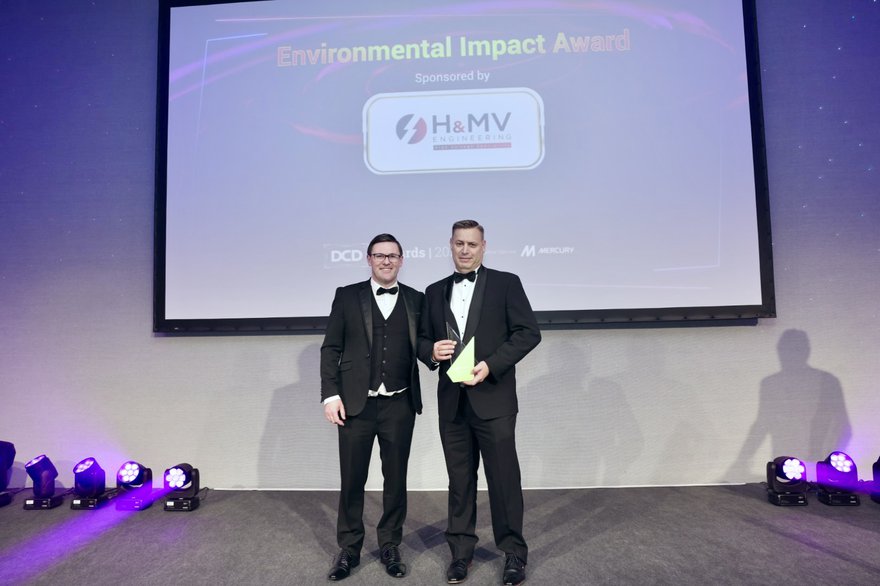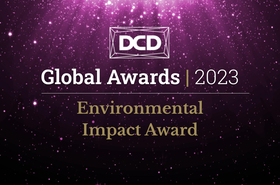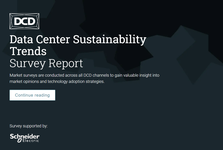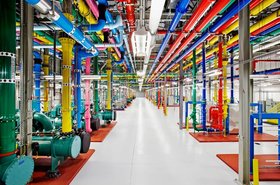For too long, data centers have treated servers and other IT hardware as a consumable that can be trashed when its lifetime is over.
The world is learning that natural resources are finite. Right now, electronic waste (e-waste) is the fastest-growing stream of such material. More than 11 billion tons of it are produced each year and, despite directives and urging from national and regional governments, only 20 percent of it is recycled.
Microsoft’s cloud is expanding rapidly, with millions of servers deployed in more than 140 countries. This represents a considerable throughput of hardware, and Microsoft has created Circular Centers at major data center campuses, to pioneer the use of regenerative and restorative cycles for e-waste.
Circular Centers process decommissioned cloud servers, sorting components and equipment to optimize material that can be reused or repurposed - an activity which earned them the DCD Environmental Impact Award for 2022, sponsored by H&MV Engineering
Microsoft’s plan is for the whole company to achieve zero-waste by 2030, and the company is on track to reuse or recycle 90 percent of its cloud computing hardware assets by 2025.
In 2021, the company ran a pilot Circular Center in its Amsterdam campus, a major site which was able to gather seven percent of the servers discarded by Microsoft’s global cloud operations.
This facility now processes decommissioned cloud hardware so that, 82 percent of all decommissioned assets are reused and recycled, The Centre is on track to reach 90 percent by 2025.
The Center uses routing software and Microsoft’s own Dynamics 365 ERP/CRM application.
At the start of 2022, Circular Centers were opened in Boydton, Virginia, and Dublin, Ireland, with Singapore following in the footsteps of June 2022, and most recently Chicago, Illinois. Microsoft plans to extend the model to most of its cloud assets.
As well as addressing Microsoft’s own waste stream, the Circular Center is offered as a model for others. The business process has been shared transparently, for others to adopt or adapt for their own situation.
“We are transparently sharing our approach, impact, and lessons learned to help other organizations reimagine business models towards a more sustainable and circular economy,” the company said in a statement.
In particular, Microsoft learned that a Circular Center must have involvement from multiple stakeholders and teams, from Finance to Construction to Planning to Engineering to Operations. Getting all these players on board is a crucial first step.
The company also learned that the circular economy is not limited to any one company. Its Circular Centers make partnerships with suppliers, third-party IT Asset Disposition partners, and the community.
The Circular Center approach feeds back into sustainable design and responsible sourcing of the original assets. As Microsoft designs much of its hardware portfolio, it has been able to build sustainability into the systems that it commissions.
The company now runs an Intelligent Disposition and Routing System (IDARS) that will deliver the zero waste plan, picking the best disposition path for every component.
Across the whole system, security of customer data, which may be held in discarded storage systems, is built in.
Much of the repurposed equipment is provided for schools and specialized skills training programs, and the Circular Centers are also creating new jobs with transferable skills, seeding a whole new generation of circular economy experts.
“The core of our Circular Center strategy is to empower customers and the world to decouple growth from the use of virgin resources,” says Microsoft. “But the impact goes beyond sustainability. Our Circular Centers increase value, ensure compliance, and increase resiliency. Circular Centers demonstrate the business opportunity available to any company if they place circularity and sustainability at the center of their operations.”
Microsoft's corporate vice president Noelle Walsh also won the Sustainability Pioneer Award, sponsored by Eaton. "I very much consider it an organization-wide recognition," she said. "My team is incredibly dedicated to making our ambitious sustainability goals a reality, and this award is for them. Thank you, DCD, for this recognition."





